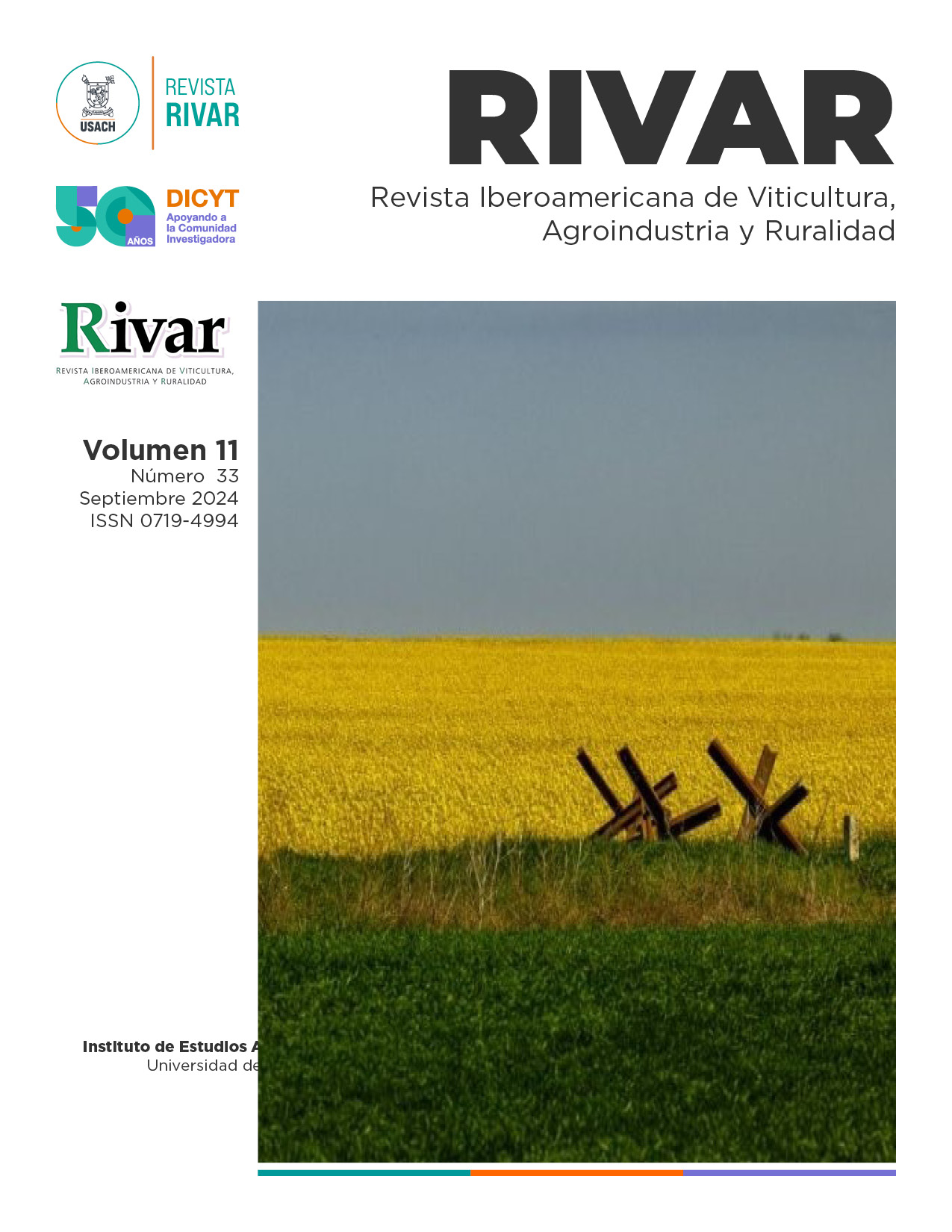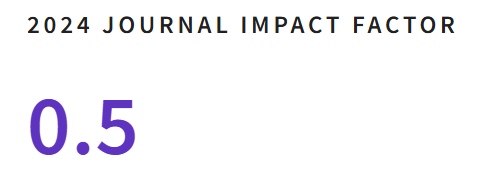The Main Results of the Transition to Organic Agriculture in the Republic of Kazakhstan
DOI:
https://doi.org/10.35588/rivar.v11i33.6364Keywords:
agricultural sector, innovation, state management, sustainable development, farmingAbstract
In modern realities, countries that specialize in selling agricultural products abroad are conditionally divided into two types: those that are mainly engaged in the cultivation of organic products, and those that actively use synthetic fertilizers, pesticides. The Republic of Kazakhstan is one of the examples of states that are switching to the principles of organic agriculture. Thus, consideration of the main results of Kazakhstan in the context of the transition to such principles of functioning remains relevant. The purpose is to show what the Republic of Kazakhstan has managed to achieve in terms of the transition to organic agriculture, and what trends are currently observed in the industry. The work showed that the country has achieved some indicators in terms of the transition to organic agriculture. In particular, the foundation was laid for the legislative framework, which created the opportunity to develop this business in principle. Nevertheless, a significant number of problems remain relevant that prevent the achievement of the intended goals in the industry. The main one is the lack of national production in the domestic market of the country due to the complex certification process.
Downloads
References
Beloev, H.I., Stoyanov, K.E., Dimitrov, P.D., Kravchuk, V., Kangalov, P.G., and Marinov, S.Z. (November 12-14, 2020). Study of the Operational Efficiency Indicators of Soil - Protecting Machine - Tractor Aggregates Used for Vertical Mulching by Importing Organic Matter in the Soil. In 2020 7th International Conference on Energy Efficiency and Agricultural Engineering, EE and AE 2020 - Proceedings, 9279006. Institute of Electrical and Electronics Engineers. Ruse, Bulgaria.
Crowder, D.W. and Reganold, J.P. (2015). Financial Competitiveness of Organic Agriculture on a Global Scale. Proceedings of the National Academy of Sciences of the United States of America, 112(24), 7611-7616. https://doi.org/10.1073/pnas.1423674112
Das, S., Chatterjee, A., and Pal, T.K. (2020). Organic Farming in India: A Vision Towards a Healthy Nation. Food Quality and Safety, 4(2), 69-76. https://doi.org/10.1093/fqsafe/fyaa018
Durrer, A., Gumiere, T., Zagatto, M.R.G., Feiler, H.P., Silva, A.M.M., Longaresi, R.H., Homma, S.K., and Cardoso, E.J.B.N. (2021). Organic Farming Practices Change the Soil Bacteria Community, Improving Soil Quality and Maize Crop Yields. PeerJ, 9, e11985. https://doi.org/10.7717/peerj.11985
Ekoconnect (2021). Report on the Situation of Development of Organic Agriculture and Food Industry in Kazakhstan. Ekoconnect. http://www.ekoconnect.org/tl_files/eko/p/Projekte/MOE-Laenderberichte/Stranovoj-otchet-po-organicheskomu-selskomu-xozjajstvu-Kazaxstana-EkoConnect-2021.pdf
FAO (2015). On the Approval of the Rules for Maintaining the Register of Producers of Organic Products. FAO. https://faolex.fao.org/docs/pdf/kaz161070R.pdf
Grigoruk, V.V. and Ayulov, A.M. (2019). Ecological and Economic Conditions in Kazakhstan for Growing Crops Using Organic Technologies. Human Science: Studies in the Humanities, 4(38), 223-229.
Home, R., Indermuehle, A., Tschanz, A., Ries, E., and Stolze, M. (2019). Factors in the Decision by Swiss Farmers to Convert to Organic Farming. Renewable Agriculture and Food Systems, 34(6), 571-581. https://doi.org/10.1017/S1742170518000121
Karabassov, R., Nurmaganbetov, K., Aidynov, Z., Orynbekova, G., and Khapova, A. (2022). The Main Areas of Development of Organic Agriculture in the Republic of Kazakhstan. Scientific Horizons, 25(9), 105-116. https://doi.org/10.48077/scihor.25(9).2022.105-116
Meemken, E.V. and Qaim, M. (2018). Organic Agriculture, Food Security, and the Environment. Annual Review of Resource Economics, 10, 39-63. https://doi.org/10.1146/annurev-resource-100517-023252
Nasiyev, B., Bushnev, A., Zhanatalapov, N., Bekkaliyev, A., Zhylkybay, A., Vassilina, T., Shibaikin, V., and Tuktarov, R. (2022). Initiation of Safflower Sowings in the organic farming system of Western Kazakhstan. Oilseeds & Fats Crops and Lipids, 29, 34-46.
Reddy, A.A., Melts, I., Mohan, G., Rani, C.R., Pawar, V., Singh, V., Choube, Y.M., Vashishtha, T., Suresh, A., and Bhattarai, M. (2022). Economic Impact of Organic Agriculture: Evidence from a Pan-India Survey. Sustainability, 14(22), 15057. https://doi.org/10.3390/su142215057
Republic of Kazakhstan (2015). On the Production of Organic Products. Law of the Republic of Kazakhstan. https://online.zakon.kz/Document/?doc_id=37002307&pos=3;-108#pos=3;-108
____. (2017a). Organic Products. National Mark of Conformity for Organic Products. Technical Requirements and Procedure for Labelling Organic Products. Standard of the Republic of Kazakhstan 3109-2017. Republic of Kazakhstan. https://online.zakon.kz/Document/?doc_id=32713286&pos=3;-106#pos=3;-106
____. (2017b). Conformity Assessment. Requirements for Bodies to Confirm the Conformity of the Production of Organic Products and Organic Products. Standard of the Republic of Kazakhstan 3110-2017. Republic of Kazakhstan. https://online.zakon.kz/Document/?doc_id=37876843
____. (2017c). Organic Products. Requirements for the Production Process. Standard of the Republic of Kazakhstan 3111-2017. Republic of Kazakhstan. https://online.zakon.kz/Document/?doc_id=34797135
Samenbetova, D.S. and Patlasov, O.Y. (2022). Model of State Support for Organic Farming of Kazakhstan in the Context of Creation of International Regulatory Framework for the Industry. BIO Web of Conferences, 42, 06004. https://doi.org/10.1051/bioconf/20224206004
Shahini, E., Shehu, D., Kovalenko, O., and Nikonchuk, N. (2023). Comparative Analysis of the Main Economic and Biological Parameters of Maize Hybrids that Determine their Productivity. Scientific Horizons, 26(4), 86-96. https://doi.org/10.48077/scihor4.2023.86
Smith, O.M. et al. (2019). Organic Farming Provides Reliable Environmental Benefits but Increases Variability in Crop Yields: A Global Meta-analysis. Frontiers in Sustainable Food Systems, 3. https://doi.org/10.3389/fsufs.2019.00082
Znaor, D., Pretty, J., Morrison, J., and Todorovic, S.K. (2005). Environmental and Macroeconomic Impact Assessment of Different Development Scenarios to Organic and Low-input Farming in Croatia. University of Essex.









